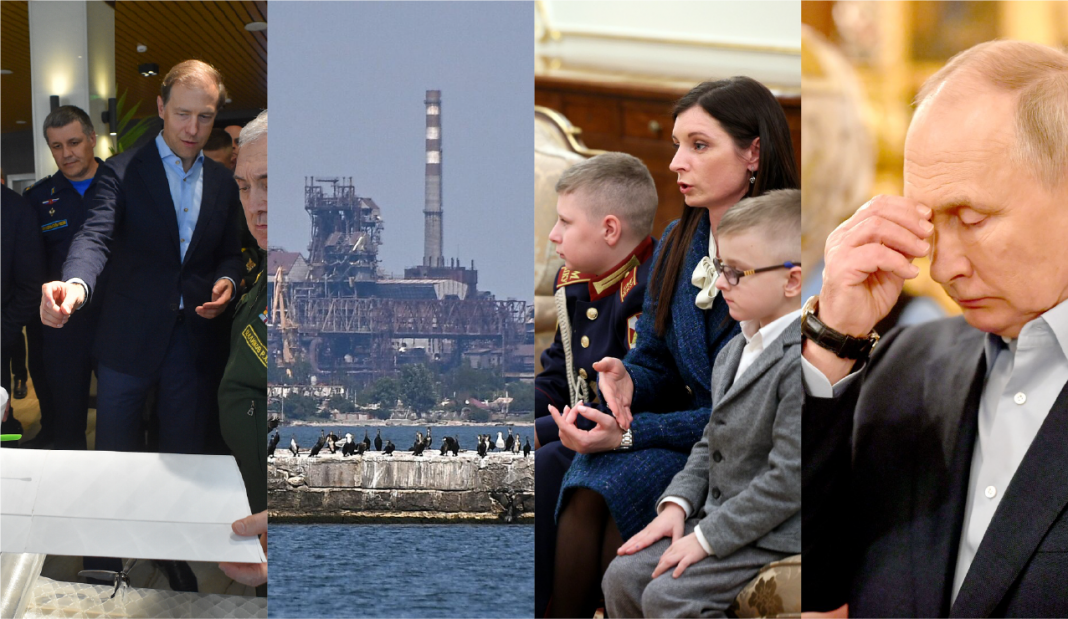This report describes the key events significantly influencing Russia’s political, economic, and social processes.
Assessing the past week’s results, we identify the following trends:
- Against the New Year and Christmas holidays backdrop, Russia’s bureaucratic and clumsy state machine demonstrated traditional stagnation. The week passed without any special events, but Vladimir Putin tried to make the most of the holidays for election campaigning and demonstrating the main ideological directions of his campaign. Hence the emphasis on family values and attempts to raise morale.
- Despite the “holiday” stagnation, some relevant ministers tried to demonstrate active work by visiting the temporarily occupied territories of Ukraine and specialising events related to military equipment. This approach also emphasises the previously proposed strategy in 2024: militaristic rhetoric will remain in the Kremlin’s foreign policy trends.
- At the same time, paying attention to the resumption of prisoner exchanges between Kyiv and Moscow is essential. This factor indicates the existence of an informal negotiation process, the results of which, shortly, will be able to demonstrate the first framework within which the further situation in the geopolitical arena will develop.
This report highlights the following most relevant for Russia matters, which occurred during 02-07 January:
1. Vladimir Putin’s meeting with the families of deceased soldiers;
2. Christmas greetings from Vladimir Putin;
3. Marat Khusnullin’s visit to occupied Mariupol;
4. Denis Manturov held a visiting meeting of the technopolis “Era” council.
This Content Is Only For Subscribers
- Vladimir Putin’s meeting with the families of deceased soldiers
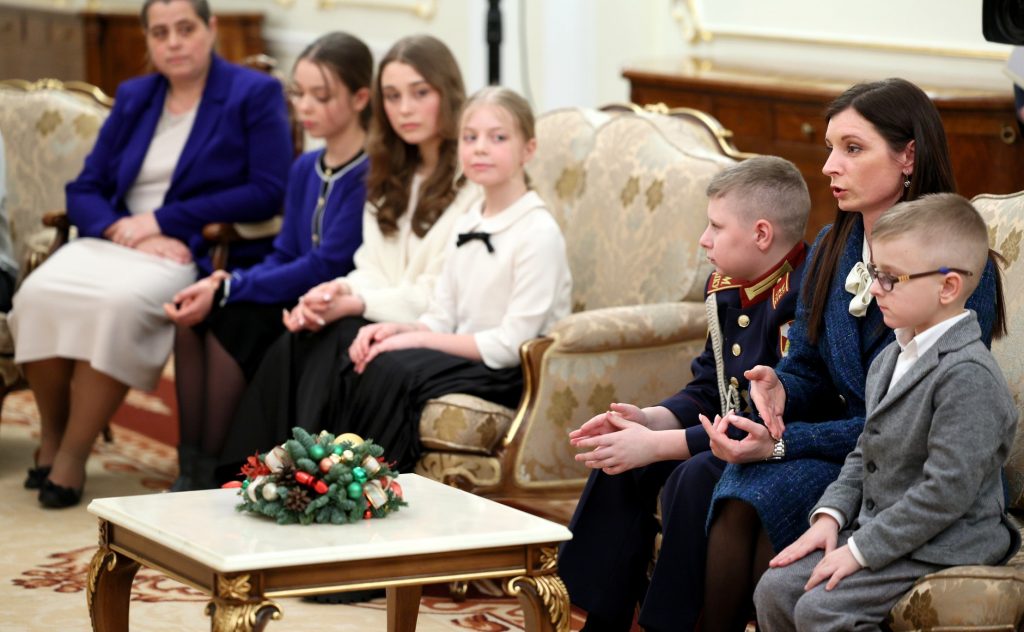
On Saturday, January 6, Vladimir Putin met with family members of military personnel who died in the so-called “special military operation.” A special agenda, with visits to several Moscow museums and attractions, was organised for the participants. The meeting with the president was the final event in the schedule. Then, there was also a joint dinner, after which the meeting participants took part in the Christmas service.
Key theses:
- “Christmas is one of the warmest [holidays]. Just as New Year, Christmas in Russia is celebrated as a family holiday. Maybe it’s even more family-friendly than New Year’s. It is, I repeat, a warm, very gentle, sincere, and one of the most beloved Russian holidays.”
- “In this regard, I would like to note that, as you know, many of our men, our courageous, heroic males, Russian warriors, defend the interests of our country with arms in their hands even now, during this holiday. Therefore, firstly, I would like us to congratulate everyone on this holiday from here.”
- “And secondly, I would like our meeting to be a clear, understandable indication to all my colleagues throughout the Russian Federation and at all levels – a clear indication that my colleagues will always and everywhere be with you, I repeat, at any level of authority, management; so that you always feel there are people next to you who can support, help, come to the rescue if you need it. Life is complicated and diverse; and always there are situations, they often happen when external support is needed. I hope that it will be like that”.
Outcomes and outlook:
Putin continues to focus on militaristic rhetoric and appeals to the military theme. In this situation, his meeting with the families of fallen soldiers is a demonstration that the state will not leave these families without attention, a message to the soldiers that the homeland will take care of their loved ones in the event of the death or injury of the main breadwinner. This meeting should be viewed entirely in the context of the presidential election campaign and as an element of emphasis on military issues.
- Christmas greetings from Vladimir Putin
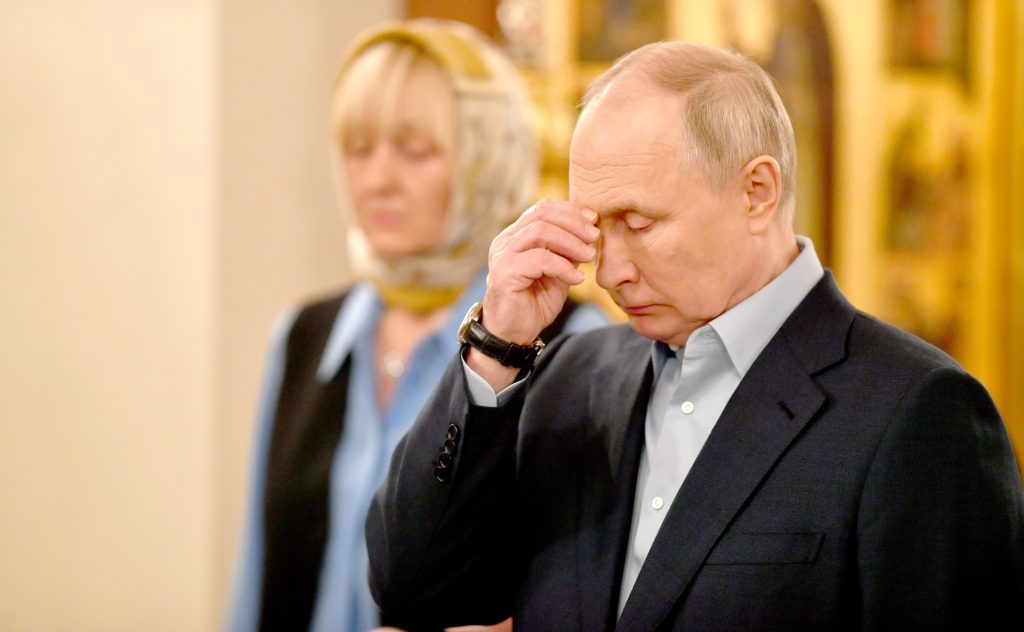
On Sunday, January 7, Vladimir Putin attended a Christmas service at the Cathedral of the Saviour of the Holy Face in Novo-Ogaryovo. Surrounded by parishioners and military personnel family members, Putin posed for cameras and talked with people. In his short congratulatory address, the Russian president mentioned the Donbas, “Novorossiya”, as well as the so-called [SMO].
Key theses:
- “One of the most beloved, long-awaited Christian holidays unites millions of people near the ideals of goodness, mercy and justice. These unshakable values play a unique role in our country’s history; for centuries, they have served as a reliable spiritual and moral support for society.”
- “It is important that the Russian Orthodox Church and other Russian Christian religious denominations make a huge, inspiring contribution to preserving our rich historical and cultural heritage, strengthening the institution of the family, and the patriotic education of the younger generation. And of course, the efforts of religious organisations, aimed at supporting our heroes – participants of the [so-called] “special military operation”, residents of Donbas and Novorossiya, deserve deep, sincere respect.”
Outcomes and outlook:
Like in his New Year’s greetings, Putin focuses on “traditional values” and the “institution of family.” Thus, he demonstratively emphasises the difference between the “Russian World” and “Western values” and shows that in relations between Russia and the West, there is not only an element of military-political and economic confrontation, but the split runs along a civilisational contour, the definition of which is issues of tradition, family, faith and gender relations.
- Marat Khusnullin’s visit to occupied Mariupol
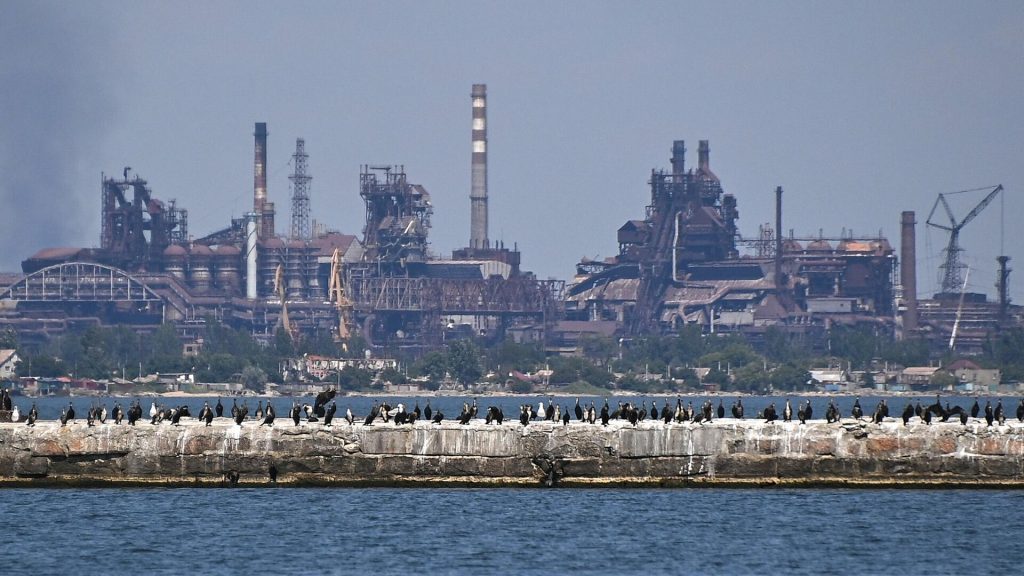
On Friday, January 5, Deputy Prime Minister Marat Khusnullin made a working trip to the temporarily occupied territory of Ukraine. He reviewed the social and residential facilities restoration progress, as well as the pace of reconstruction of public space in [temporarily occupied] Mariupol.
Furthermore, in Mariupol, Khusnullin held a meeting on the region’s socio-economic development; there, participants examined the construction program, individual housing construction, road construction and budget execution.
Key theses:
• “From the first days of January, works in the city continued. In the intensive care hospital, where 15 thousand patients are admitted per month, new equipment for MRI and CT has already been installed without interrupting the treatment process. Angiographic systems should be installed here in January. The premises have been renovated for them.”
Outcomes and outlook:
Marat Khusnullin, a man from Putin’s inner circle (from the so-called “Tatar group”), is the head of the construction and restoration of Donbas. His arrival in Mariupol is a signal to the occupied territories and Russian citizens that Putin intends to restore the destroyed Donbas and, most likely, by the presidential elections, a picture of the vast construction taking place in the occupied territories will be shown. Such pictures are intended to inspire hope and give positivity against the backdrop of battlefield reports.
- Denis Manturov held a visiting meeting of the technopolis “Era” council
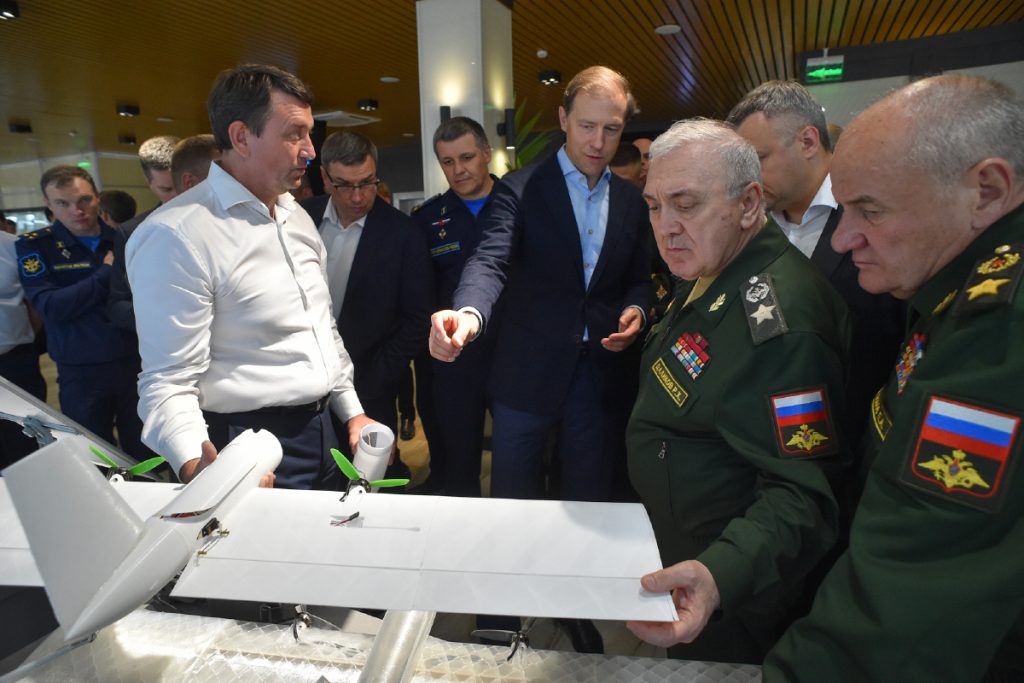
On Friday, January 5, at the initiative of the Deputy Prime Minister – Minister of Industry and Trade Denis Manturov, a visiting meeting of the Ministry of Defence’s Military Innovation Technopolis “Era” council was held at the Raevsky military training ground near Novorossiysk. The scientific director of the technopolis – the President of the National Research Centre “Kurchatov Institute” Mikhail Kovalchuk, and First Deputy Minister of Defence Ruslan Tsalikov also participated in the meeting.
During the meeting, a demonstration of the means of combating unmanned aerial vehicles, developed by the MIT “Era” residents and enterprises, was held. According to the inventors, the demonstrated systems can protect stationary and mobile objects from aircrafts, helicopters, multi-rotor UAVs, and FPV drones, including in insufficient optical visibility conditions. It was also noted that some of the devices shown are already being tested in the “special military operation” zone, while others are at the final stage of development.
Outcomes and outlook:
This meeting worth attention not only in terms of the prospects for the development of the Russian military-industrial complex but also shows that recently, there has been a forced reconciliation between the groups of Kovalchuk and Chemezov (whose representative is Manturov). As Ascolta predicted, on the eve of the elections, Putin did everything to minimise the confrontation between the “Kremlin towers”, forcing them to work in a single direction – for Putin’s victory and ensuring a predetermined result for him (voter turnout at a level of at least 70%, the result of support Putin – no less than 80%).

